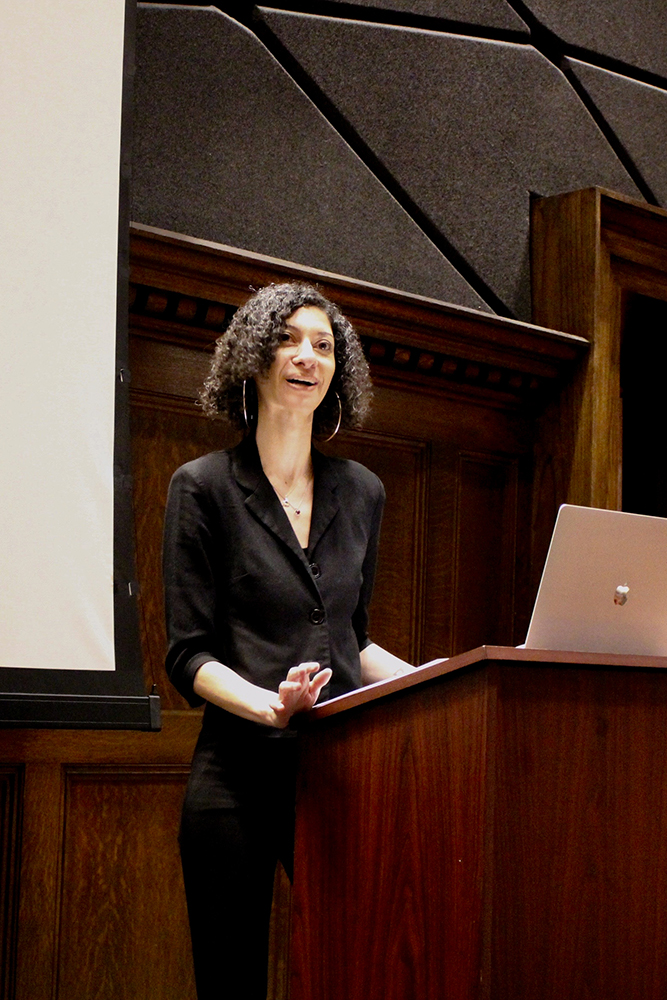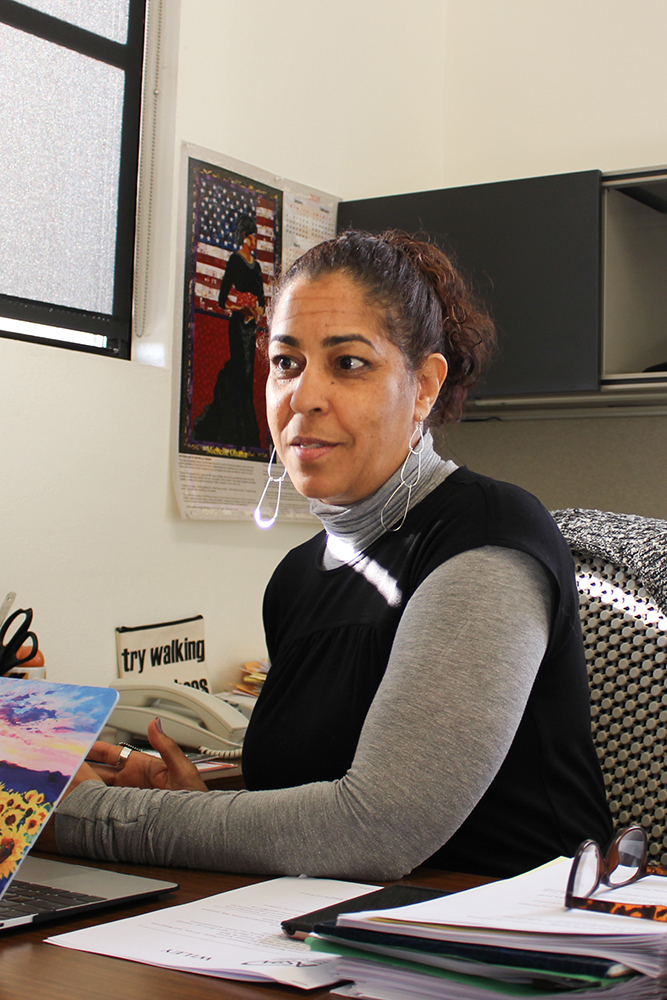
Professor Chanda Prescod-Weinstein from the University of New Hampshire gave a lecture on cosmology (the study of the cosmos and physics) from her perspective as a woman of color in science, technology, engineering and math (STEM) Feb. 6 in Choi Auditorium. According to Politics professor Regina Freer, Prescod-Weinstein is the seventh scholar-in-residence for the Stafford Ellison Wright program at Occidental. Freer, who is the chair of the Politics department and part of the Stafford Ellison Wright committee, described the program as a means for allowing black scholars to share their work with the research rotated between the disciplines of arts and humanities, social sciences and sciences. According to Freer, they wanted scholars whose work would excite and energize the campus while maintaining broad interdisciplinary interest. Professor Courtney Baker, an associate professor in the American studies department and chair of the black studies program, described Prescod-Weinstein as a pioneer in her field.
The Stafford Ellison Wright program at Occidental started as a fund in order to celebrate the first black alumni of the college and bring in a scholar whose work would be relevant to black culture, Freer said via email. According to Professor Janet Scheel of the physics department, it was important to her that she heard from a black, woman physicist since there are not that many in the field. Baker also noted that it is vital that the work of marginalized people become normalized in order to contribute to knowledge production and overcome the erasure often faced by marginalized people in STEM.
“Because if someone is kept out of, or dissuaded from being in the room, being in the field, then that’s harming knowledge,” Baker said.

According to Freer, the Stafford Ellison Wright Scholar is present on campus for two to three days to meet the community and deliver a public lecture. Prescod-Weinstein, according to Freer, was chosen this year because of her broad and deep work in her field, as well as the philosophical background that she uses in order to question the world and provide possible answers. She is also one of the few black women in physics, according to Baker. Scheel stated that students were excited to hear her perspective as well. Scheel also attended a lunch to meet Prescod-Weinstein.
“The students too can benefit from what she has to say,” Scheel said.
Prescod-Weinstein said she enjoyed visiting the classes during her residence and felt lucky to be included in the Stafford Ellison Wright program that previously showcased other prominent scholars in their fields.
“I am grateful to the Occidental community for welcoming me. I really felt like I was in an academic home,” Prescod-Weinstein said.
In her lecture, Prescod-Weinstein shared some general ideas about her field of study with the audience. She said she works on understanding the timeline of the universe, more specifically the beginning of the universe called the Planck era. She described how the universe is made up of 73 percent dark energy, 23 percent dark matter and four percent “normal matter,” which is what we experience. Prescod-Weinstein also shared her research about the Bose-Einstein condensate, a particular wave formation atoms form when they are cooled to near absolute zero.
“As you get to lower temperatures, the particles will start to act more like waves and less like billiard balls, the classic billiard balls,” Prescod-Weinstein said. “They will start to be more quantum mechanical, and as you get to a critical temperature for protons, those waves will start to add into one coherent wave. So thinking about, for example, doing my hair in the morning. I really have two options after I wash it. I can either pull the curls out and so I’ll have something a little more like this [gestures to her hair]. Or I could not touch it and let the curls dry together so that they will be more coherent with each other and act like a wave. This is another way of thinking about the Bose-Einstein condensate.”
After discussing her physics research, Prescod-Weinstein ended her lecture by talking about how science is a social phenomenon that she also researches. She told the audience about growing up in a low-income, single-parent household in East Los Angeles and her struggles with her identity throughout her education and career because she often was one of the few, if not only, black women at the table. In addition to sharing her own struggles, she also talked about the increasing hatred and hardships faced by refugees and immigrants in this country now.
“We have to demand human rights for all, including the right to know and understand the night sky. Not as a context for desperate and dangerous searches for freedom, but really, the night sky shouldn’t be the place you were forced to sleep under as you [run] for your life, but rather a really beautiful place that holds the answers to how we came to exist at all.”
![]()



































